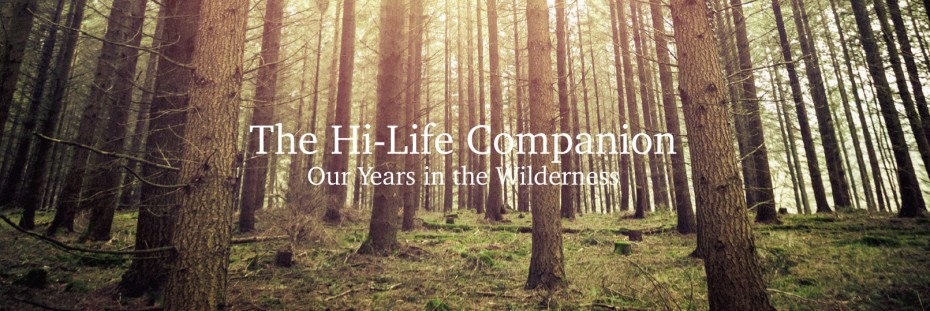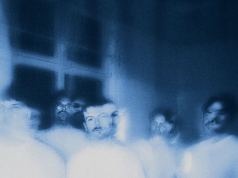Our Years in the Wilderness is the 2nd album from Bristol based The Hi-Life Companion, a collaboration from brothers Matt and Jonathan Troy. The recording took place over a 4-year period in a disused warehouse in Thornbury, as well as various houses around Bristol. The brothers wrote, arranged and recorded all 11 tracks off the album, as well as providing the majority of the instrumentation. Helped by long time drummer Mark Freeth, vocalist Lucy Rogers, and a host of additional musicians, specifically string and horn players, which feature heavily on the record.
The themes and stories behind the album span the last 100 years, covering diverse topics including nautical history, adolescent obsessions with tennis players, and old mining stories from the Forest of Dean. As Jonathon explains “Growing up we were always fascinated by the eerie undiscovered wonders of the Forest and Wye Valley. I wanted to write something which was rooted geographically in the area I knew as a child and teenager, and which captured this feeling of strange creepy places and the adolescent excitement of crossing boundaries, expanding horizons, stepping into the wilderness that lies beyond the bottom of the garden.”
The strength of the album is in the instrumentation, and the care and time taken to craft the songs. The usage of the strings and horns are a real highlight of this album, some really beautiful melodies complimenting the lush guitars. Drawing inspiration from the cinematic sounds of Richard Hawley, amongst others, the influence is notable. The string arrangements are reminiscent of Elbow, themselves Richard Hawley fans.
The band has been around since 2002, having previously released their debut Say Yes in 2010. Clearly a labour of love, the band has taken their time with the recording and releasing this follow up. The production is of a good quality, the arrangements excellent, the recording all done by the band themselves, which goes some-way to explaining the expanse of time between albums.
Brockweir House opens the album on a dark tone, with a quiet but menacing bass drum backing the guitar, trumpet and violin. There is sparseness despite the number of instruments playing. It is a short opener, and contains very little in the way of vocals, but a great introduction to what is the mainstay of this album, wonderful intersecting melodies from the guitar, trumpet and strings. The repeated violin line is the main hook, and is quite a good introduction to the leading line on the 2nd track, and album highlight Meet Me At The Pier. This is Hi-Life Companion at their best, full of hooks and great production, a song that has a lot of melodies at once, but all complementing each other.
[youtube width=”640″ height=”360″]http://youtu.be/n8kCMFVSnuA[/youtube]
The album features some diverse styles. There is 60’s pop, such as Sabatini and the title track Our Year In The Wilderness. There are some more upbeat rock’n’roll numbers, such as Raise an Army, and Dark Heart. However the band is probably at their best with the slower, darker numbers, more of a folk sound, such as Old Bristol Road, which really leans on the acoustic guitar and an old folk sounding violin line.
It is the instrumentation that shines on this album, with the vocals sometime seeming a secondary consideration. Whilst the album is largely based on the guitar, trumpet and strings, there are a wide variety of sounds utilised, such as organs, xylophone and even a Theremin at one point.
Our Years in the Wilderness is out today on the bands’ own No Pudding Annie label, as well as their Bandcamp page.
Nicholas Cheek










